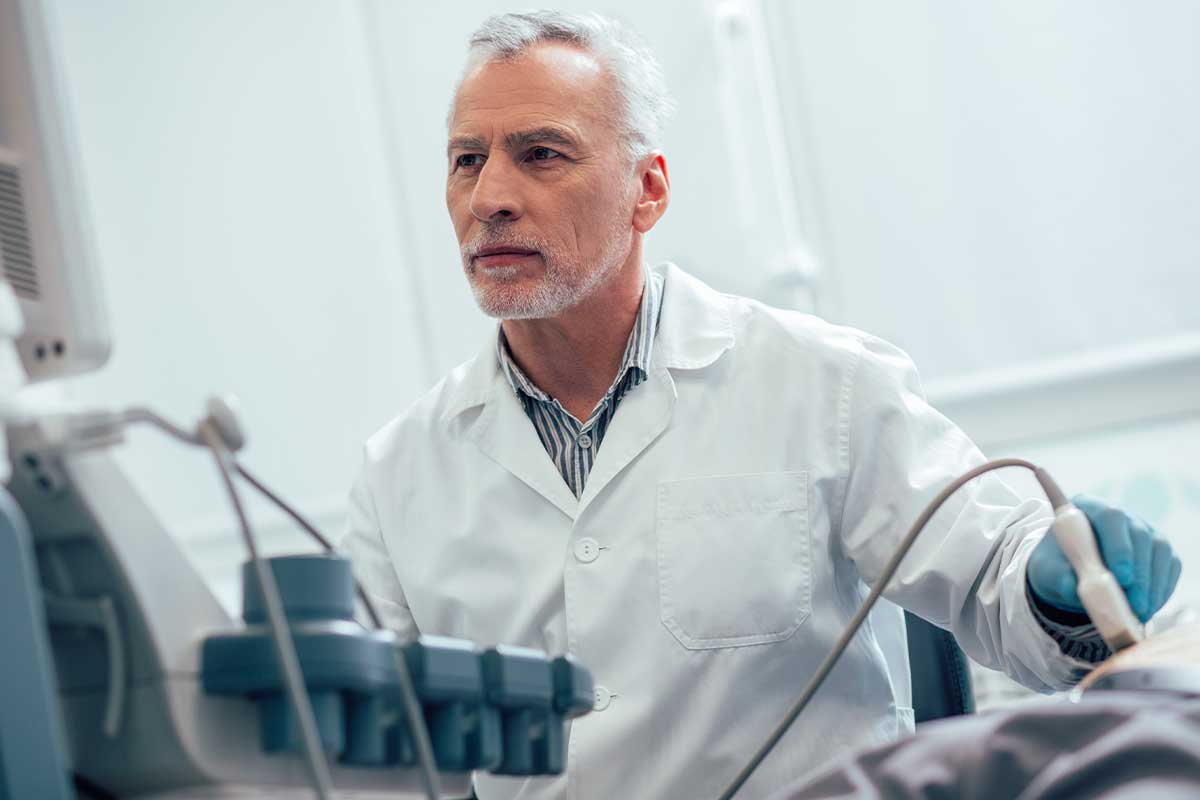
17
Jan
Can a gastroenterologist remove hemorrhoids during a colonoscopy?

Hemorrhoidectomy is a rigorous, occasionally uncomfortable, but sometimes successful, even permanent, treatment option. Complications are uncommon and often not serious.
Hemorrhoid Removal during Colonoscopy: Is it Possible?
During a colonoscopy, hemorrhoids can be removed. but it must be understood that they are two different procedures. And you should talk to your gastroenterologist about your need to remove the hemorrhoids and whether it is possible to do it during the colonoscopy process.
You may be interested in: What does a gastroenterologist do?
Hemorrhoids are a common and manageable condition, which you will understand better the more you study about them.
He will evaluate your case and confirm if it is possible to perform these procedures. You should remember that a colonoscopy is a test that lets your doctor look at the lining of your large intestine (colon) and rectum. A colonoscopy can find problems, such as bleeding, inflammation, ulcers, and tumors.
Can you get a colonoscopy if you have hemorrhoids?
If you have hemorrhoids, you may be wondering if you can still get a colonoscopy. The answer is yes, you can. Hemorrhoids are common, and they don’t usually interfere with the colonoscopy procedure.
If you have hemorrhoids, they may be visible on the camera as small, dark lumps. Hemorrhoids are usually not a problem, and they won’t affect the colonoscopy procedure.
Understanding the Risks and Benefits of Hemorrhoid Removal during Colonoscopy
An operation to remove internal or external hemorrhoids is called a hemorrhoidectomy.
Surgery is not generally the initial course of action. However, if all else fails, hemorrhoidectomy is a safe, efficient procedure that not only makes hemorrhoids easier to live with, but also completely eliminates them.
Nearly three out of every four individuals will experience hemorrhoids at some point in their lives. Most people can control symptoms with noninvasive techniques. Hemorrhoidectomy is a therapy option in cases where other options are unsuccessful.
Hemorrhoids may be surgically removed as an option if:
- You’ve tried less invasive techniques, but they didn’t help because you have severe hemorrhoids that are quite uncomfortable.
- You have both internal and external hemorrhoids, which are strangulated, and you require surgery for additional anorectal disorders.
- External hemorrhoids are enlarged due to a clot.
Your age, general health, and how well you should respond to surgery are further factors.
The Role of Gastroenterologists in Hemorrhoid Removal during Colonoscopy
Between the conservative treatments provided by a primary care physician and the more intrusive hemorrhoidectomy provided by a surgeon, a gastroenterologist has a unique position.
Gastroenterologists only offer the most advanced and specialized care. Your hemorrhoids will be carefully inspected, diagnosed, and treated by them.
What You Need to Know About Hemorrhoid Removal during Colonoscopy
Hemorrhoid surgery is the most efficient method of treating hemorrhoids that are producing bothersome symptoms. This is usually a choice for those who have symptoms that don’t go away with other treatments, like dietary adjustments.
Surgery’s goal is to reduce or remove the hemorrhoid completely.
This is accomplished by:
- Hemorrhoids are removed
- lowering the hemorrhoid’s blood supply
Surgery can be beneficial for symptoms that are excruciatingly painful since a specialist can immediately remove the hemorrhoid. The healing period following surgery, however, can last for several weeks.
You may be interested in: All disease begins in the gut
What to Expect During and After Hemorrhoid Removal during Colonoscopy
You will check in at the hospital, surgical facility, or office the day of your hemorrhoid surgery.
During the Procedure
If general anesthesia is required, the anesthesiologist will administer intravenous or inhaled anesthetics to make you unconscious. An endotracheal tube will be placed down your throat after you are sleeping to enable mechanically assisted breathing throughout the procedure.
Your spine is numbed by a drug that the surgeon injects during regional anesthesia. As the drug is injected, you can experience a stinging sensation.
A numbing agent is likewise used in local anesthesia, but it is injected into the region close to your anus. Additionally, a sedative will likely be administered to you so that you can unwind or doze off throughout the procedure.
After the Surgery
As you gradually awaken from general anesthesia or the sedative, a nurse will keep an eye on your vital signs in the recovery area.
You might be required to urinate before being given the all-clear to go home following hemorrhoid surgery because urine retention is a potential side effect (if a same-day surgery).
You will be transported on a gurney to your hospital room if you are staying there.
Recovery and Follow-Up Care After Hemorrhoid Removal During Colonoscopy
These surgeries have different recovery times.
A hemorrhoid that has had its blood supply cut off must heal for many days after the procedure.
It may then take the wound 1 to 2 weeks to heal completely.
It can take two to four hemorrhoid banding surgeries to completely eradicate one. The average time between surgeries is 6 to 8 weeks.
Hemorrhoids are surgically removed, and recovery times vary. To fully recover, it may take 1 to 3 weeks.
People can aid their recovery after surgery by taking the following actions:
- Eating a diet high in fiber and avoiding prolonged sitting
- Drinking lots of water, taking a Sitz bath, and not straining when going potty
- Avoiding routine, strenuous lifting avoiding prolonged sitting
All types of hemorrhoid surgery utilize risk-free techniques that can successfully treat hemorrhoids. If other nonsurgical therapies have failed, they are a viable alternative. Most of the time, a full recovery can be achieved in 1 to 3 weeks.
Although serious problems are uncommon, some postoperative bleeding is possible. It is crucial to call a doctor if the bleeding gets worse.

